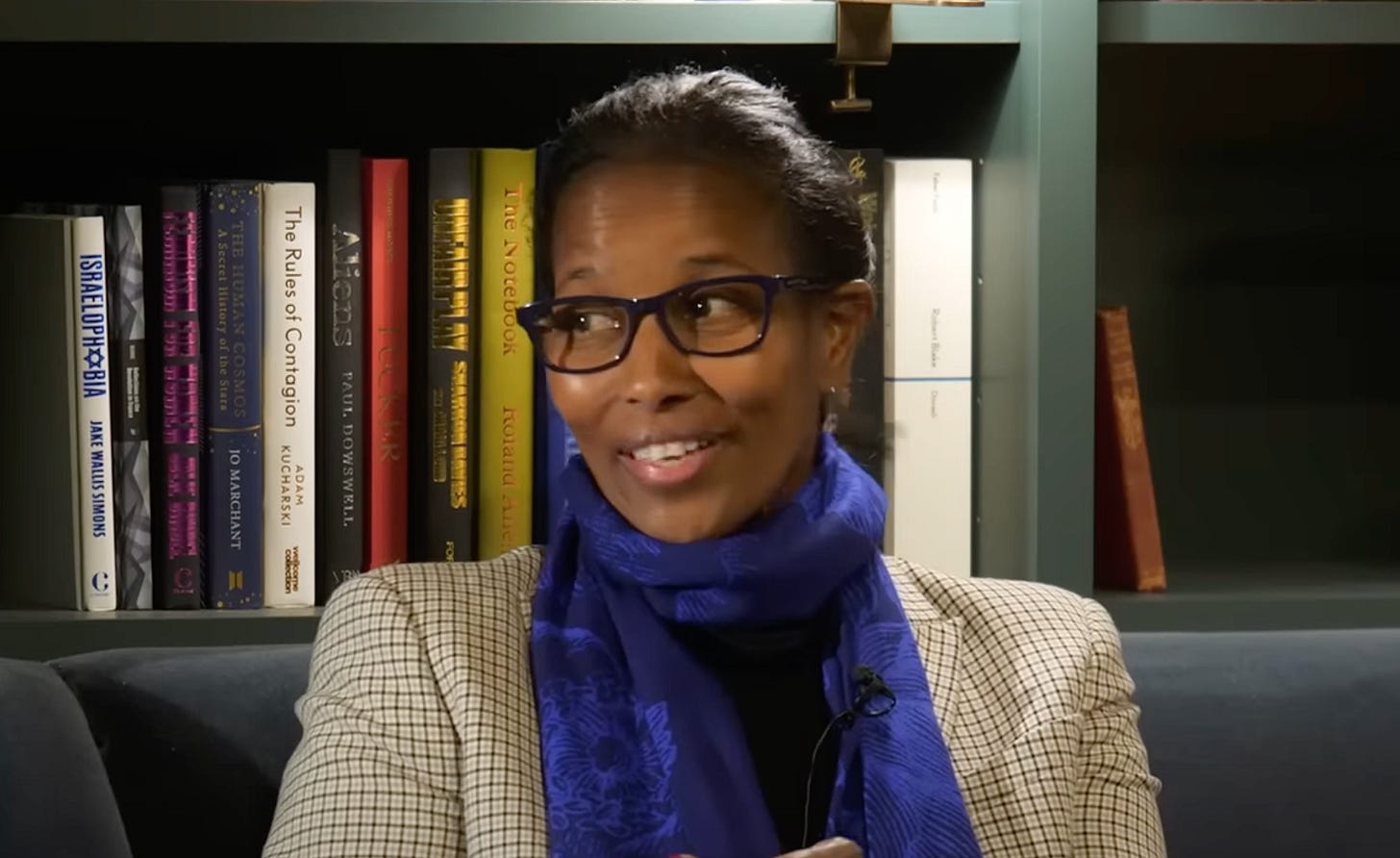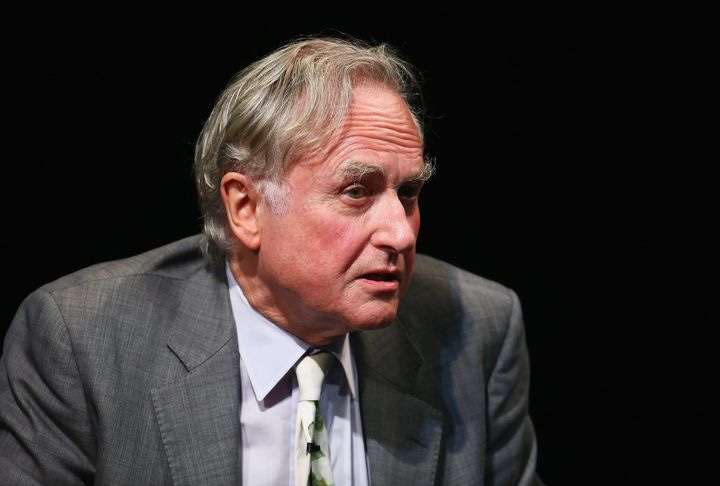The New Atheist Delusion
Ayaan Hirsi Ali Feels The Wrath of The Non-Believers
Ayaan Hirsi Ali’s announcement that she’d converted to Christianity should have contained a trigger warning. The wrath of atheists rained down as the famous Muslim apostate became the first prominent New Atheist apostate. An infidel twice over. And with all the zeal of the religious they piled on.
“the alternative to theistic morality is … humanism, the use of reason to enhance human flourishing” chimed Steven Pinker,
“Retreat into past belief systems won't address the hyper-novelty crisis. New wisdom is required” snapped Brett Weinstein,
“[it is] Enlightenment humanism—a cosmopolitan worldview that places supreme value on human and civil rights, individual autonomy and bodily integrity, free thought and free speech, the rule of law, and science and reason as the best tools for determining the truth about anything” protested sceptic Michael Shermer,
… to quote just a few.
Notably these public intellectuals jumped away from the question of God’s existence to the subject of moral philosophy. A metaphysic is not necessary to underpin a moral framework, they claim, before offering their alternatives.
New Atheists have been at this for a while. Sam Harris in ‘The Moral Landscape’ (2010) took a shot at building it on human “wellbeing”. Steven Pinker in ‘Enlightenment Now’ (2015) had a pop with “human flourishing”. Shermer and others pull together a cornucopia of Enlightenment principles.
All these oblations, ironically born of Judo-Christian values, share something fundamental with Ayaan’s Christianity. They all require a leap of faith. To pick, say, “human flourishing” is arbitrary. Why human flourishing? That assumes humans are good and that flourishing is good. There are plenty who would argue against that, the anti-natalist movement being a recent case in point.
These arbitrary choices are a continuation of Hume’s Is-Ought Fallacy. “The distinction of vice and virtue is not founded merely on the relations of objects, nor is perceiv’d by reasoning” (‘A Treatise of Human Nature’, 1740). Stephen Jay Gould famously challenged the New Atheists with the Humean argument in his 1997 Natural History magazine article ‘Non-Overlapping Magisteria’. Frans De Waal made the same argument in a 2010 NYT piece:
“Scientists are good at finding out why things are the way they are, or how things work… But to go from there to offering moral guidance seems a stretch. New Atheists nevertheless continued unerring in their quest to divine value from fact.”
There are at least two major distinctions between The New Atheist movement of the late 20th century and atheist movements of old. One is the attempt to normalise atheism culturally and legally. This is exemplified by the Madalyn Murray O’Hair v. Curlett lawsuit which culminated with the 1963 Abington School District v. Schempp Supreme Court case declaring school-sponsored Bible reading and mandatorily reciting the Lord’s Prayer in public schools was unconstitutional in the United States.
Secondly, some prominent New Atheists didn’t just argue against God’s existence. They wanted to humiliate Him. To eviscerate Him. There was an anger against Him, a bitterness, a hatred. It was not enough to argue He was incompatible with science. He must also be brought to His knees. Who could forget Stephen Fry calling God “monstrous, utterly monstrous and deserves no respect whatsoever” or Richard Dawkins claiming “The God of the Old Testament is arguably the most unpleasant character in all fiction.”
Their proselytisation was highly successful. Today in the UK 22.2 million people identify as atheist and according to the 2021 census only 46.2% of Brits identify as Christians, less than half. In the US self-identified Christians dropped from 85% of the population in 1990 to 75% in 2011 and 63% in 2021.
Welcome to the post-New Atheist world order.
But killing God doesn’t deal with the fact that humans still have to act in the world. We have to make moral decisions constantly. We need a moral framework. Accordingly myriad godless credos have emerged in the God-vacuum. Each in turn making a leap of faith somewhere along the way.
Let us take the Woke movement. Gendered souls; the sacrifice of children to the butchers of trans ideology; no forgiveness; little redemption; equality motivated at bringing down the strong, rather than lifting up the meek. A view of the world as a moral story impervious to facts. Social Justice being the ethic’s foundation stone.
The cult of environmentalism, continuing the tradition of Malthus, Paul Ehrlich and The Club of Rome, monger climate derangement and even (the Davos demigods) preach a new kosher diet of bug sandwiches and vegetarianism. The best of them ignore the human cost of their green-ideology, the worst of them see humans as a cancer on the Earth. It is the worship of Gaia.
The Post-Humanists take the foundational beliefs of their predecessor Humanists apart. Why prioritise humans over other sentient beings? Why just sentient beings today and not also those in the future? And so you get the Effective Altruists.
The Trans-Humanists, so much as a philosophy can be deciphered from the tech-bros and autistic dorks in their number, seem to put the eternal preservation of their individual consciousnesses at the apex of their coding.
These new cults are the direct progeny of New-Atheism. They emerge from the abyss of Godlessness and the moral foundation He provided. But it’s not the first time atheism has spawned quasi-religions.
There were the Statists: Soviets killed God and suffered murderous equality, the Nazis killed God in pursuit of genocidal ethno-supremacy. There was Ayn Rand who in her 1961 ‘The Objective Ethics’ attempted to square the Is-Ought question and landed on “radical selfishness” with little room for compassion or familial ties. And of course we have the nihilists who, one could argue, are the most sincere of non-believers: the only ones who follow through on the logic of a world without God. Enlightenment values without a religious underpinning have been tried before of course, lest we forget the French Revolution.
New Atheists may object to being compared to genocidal movements of history. But they are still unable to get past the question posed by Fyodor Dostoyevsky: “without God and immortal life? All things are permitted then?”
Despite some earnest attempts at grappling with the problem of ethics minus God, there is one New Atheist stuck on repeat. Richard Dawkins.
Dawkins, one of the so-called “Four Horsemen" of modern atheism, remains blind to his a priories. In an open letter response to Ayaan’s conversion he sanctimoniously calls her intelligence into question: “Intelligent people don’t believe something because it comforts them. They believe it because, and only because, they have seen evidence that supports it.” Herein dusting off the same argument he has used ad nauseam for thirty years: God cannot be scientifically proven.
Later, failing to see the self-contradiction, he wheels out a list of items he finds meaningful, precisely because they comfort him: “There’s science… there’s human love, there’s the beauty of a child, a tropical swim under the stars, a ravishing sunset, a Schubert quartet.”
Whether Dawkins can build a code of ethics off a Schubert quartet remains to be seen. Science and reason cannot prove that any of these are “meaningful and purposeful”. He could just as well have said incest, to borrow an example from Hume. These are whims, leaps of faith. He may not admit it but Dawkins is rehashing Blaise Pascal: “The heart has its reasons which reason knows nothing of... We know the truth not only by the reason, but by the heart.”
The New Atheists were remarkably successful in killing God. But stunningly unsuccessful in replacing the moral framework He provided. Hence the abundance of emergent pseudo-religions. Well-intentioned as Dawkins and other New-Atheists may or may not be, they insist on divining value from fact. In their wake a host of quasi-religions surge. All of them, like the New-Atheists, making a leap of faith somewhere along the way.
The truth is, we all make a leap of faith, but at least Ayaan, unlike Dawkins, is honest about it.
WM






I love your writing and your podcasts. Your sensitivity and your reasoning really comes through. When Ayaan called herself an atheist, nobody seemed to question it. As soon as it left her feeling hollow and searching for more, she decided to become a Christian. Now everyone is being so critical of her choice! It's the beginning of her own personal journey and though it comes from a more political stance, it's likely to become more profound with time. Though she made it public, it's still rather a private thing. I see no need to criticize her religious path. Christianity can be an extremely difficult devotion to be part of, but it really makes sense because within the religion you can find humility and try to be in a forgiving place. Next step is possibly being devoted to helping others. I think she is a very courageous woman.
Thoughtful and reasonable. Unlike the New Atheist Delusion. Thank you.